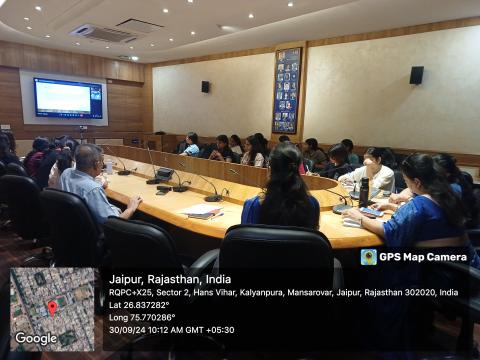Miscellany

The Department of English Literature and Language organized an interactive session led by Dr Sanchari Basu Chaudhuri, a scholar with a PhD in Sociology, who currently works at Flame University, Pune on 30th September. The session focused on the evolving portrayal of women in film, specifically examining the intersections of femininity, motherhood and societal expectations.
Dr Chaudhuri began the session by analyzing the representation of women in cinema, particularly mothers. She highlighted recurring themes of victimhood, chastity, self-sacrifice, emotional vulnerability, altruism, and meekness. These traits are commonly emphasized, with mothers often depicted as non-violent yet powerful figures. She critiqued the limited representation of working women from middle- and rural-class backgrounds, asserting that such depictions often fail to reflect the complexities of real life. She discussed how in movies like ‘Mother India’, the suffering mother is idealized as a Goddess, symbolizing the nation’s struggle for independence, and ‘Aradhana’ depicts the consequences faced by women who defy societal expectations. In contrast, ‘Mary Kom’ represents a significant shift in this narrative, illustrating a neoliberal woman detached from her traditional domestic roles.
Recent films such as ‘Shakuntala Devi’ and ‘Tribhanga’ further challenge the stereotypes by showcasing successful women navigating intergenerational conflict and redefining maternal identities. These narratives shift the portrayal of mothers from mere caregivers to empowered public figures, exploring the balance between ambition and societal expectation, as well as the accompanying guilt. The students of IISU responded enthusiastically to the session, expressing their appreciation for Dr. Chaudhuri's insights. The emphasis on the importance of choice for women in every aspect of life encapsulated the essence of the session, reflecting contemporary liberal feminist ideals.

